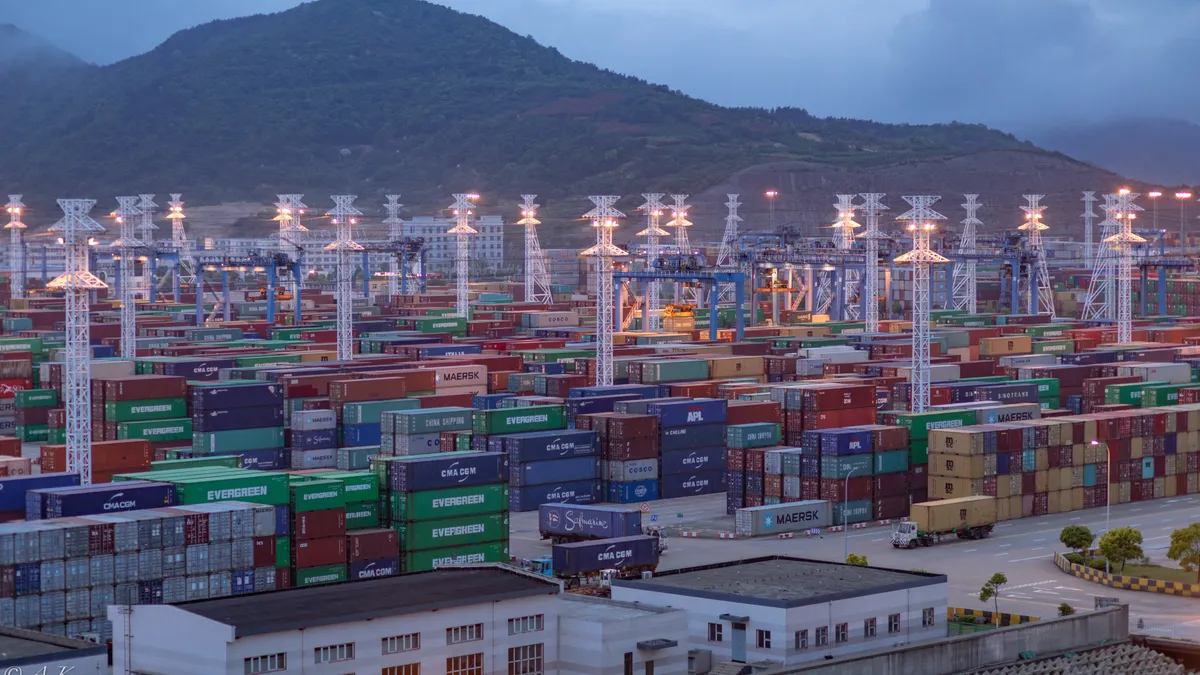Dive Brief:
- The Chinese government is waiving retaliatory tariffs on 79 U.S. import categories, according to an announcement from the Ministry of Finance the South China Morning Post reported Tuesday.
- Items eligible for waivers include semiconductor parts, medical disinfectants, rare earth metals and chemical products. The ministry did not disclose the dollar value of the imports covered.
- Importers must apply for the waivers, which go into effect May 19, within six months of the announcement in order to be considered. The waivers will remain in effect until May 21, 2021.
Dive Insight:
The announcement to waive tariffs on 79 categories comes as China's imports from the U.S. fell by nearly 26% in April, casting doubt about the country's ability to meet its purchasing requirements under the Phase One trade deal.
To fulfill its end of the bargain, China must purchase $200 billion worth of U.S. commodities, namely agricultural goods, over the course of two years. In December, the Chinese government announced tariff waivers on some imports of U.S. soybeans and pork. However, with the global economy fast approaching a recession, or even a depression, that purchasing target remains far away.
"China is still keen on buying American commodities such as pork and soybeans, but the question is whether the US can produce enough and [deliver it] to China amid the coronavirus pandemic," Chen Fengying, a senior researcher with the China Institute of Contemporary International Relations, told the South China Morning Post.
In a call between U.S. and Chinese trade negotiators May 7, the U.S. Trade Representative reported, "in spite of the current global health emergency, both countries fully expect to meet their obligations under the agreement in a timely manner." On May 8, President Donald Trump said he was "very torn" about whether to revoke the Phase One deal, according to a CNBC report.
China's latest removal of retaliatory tariffs could help some U.S. exporters, but the waivers don't cover all categories. The Trump administration granted temporary exemptions on import duties for medical supplies, including face masks and gauze, but has not given any indication it would seek to end the trade war with China.
"There's no reason," Trump said in mid-March, answering a question about removing existing China tariffs. "I can’t imagine Americans asking for" broad suspensions.
Further, Trump said he would consider resuming his trade war tariff strategy, if the Phase One deal's conditions weren't met, regardless of current economic conditions. U.S. businesses and farmers paid $3.9 billion in tariffs in March, "even as the economy was in a historic free fall," according to Tariffs Hurt the Heartland.
As a result, many firms remain under tariff burdens from the trade war, putting particular pressure on medical and technology supply chains that rely on China for raw materials, components and product assembly.














